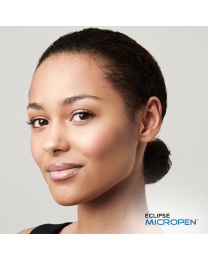Platelet-Rich Plasma (PRP) is an autologous concentrated preparation of platelets and the associated growth factors in a small volume of plasma. Platelets are a natural source of a number of growth factors in their natural and biologically-determined ratios.
5 Reasons to Avoid Red & White Blood Cells in PRP
RED BLOOD CELLS
- Lead to free radical formation
- Inflammation
- Vascular injury
- Cell death (apoptosis)
- May lead to Hemosiderin staining from iron oxide (rust). This is a permanent bruise.
WHITE BLOOD CELLS
- Release matrix metalloproteinases and produce oxygen radicals
- Tissue damage
- Inflammation
- Impaired healing
- Local pain
| Benefits | Platelets release growth factors which regulate the healing cascade by signaling to surrounding cells to repair damaged tissue and regenerate new tissue. Key growth factors involved in this process include but are not limited to:
|
|---|---|
| FAQs | What is Platelet-Rich Plasma?Autologous Platelet-Rich Plasma, also known as PRP, is a high concentration of your own platelets in a small volume of plasma. How does a provider collect PRP?Step 1: Utilizing a specialized blood collection tube from the Eclipse PRP® kit, a practitioner draws a small amount of blood similar to what is required for a basic lab test. Step 2: The tube is then placed into a centrifuge which spins the blood at a very high speed, causing the platelets to separate from the other components of the blood. Step 3: Once the platelets are concentrated into the plasma they can be applied to the patient. Activation causes platelets to release essential growth factors and signaling proteins, which are responsible for the wound-healing process. What are the growth factors and effects of Platelet Rich Plasma?Transforming Growth Factor (TGF) Vascular Endothelial Growth Factor (VEGF) Fibroblast Growth Factor (FGF) Platelet-Derived Growth Factor (PDGF) Interleukins, Macrophages, Keratinocytes, Endothelial Cells, Lymphocytes, Fibroblasts, Osteoblasts, Basophils, Mast Cells Collagen Stimulating Growth Factor Keratinocyte Growth Factor (KGF) How long does the PRP process take?With the Eclipse PRP® kit, the blood draw takes just a couple of minutes, followed immediately by a 10-minute centrifugation. The time involved in the application varies based on which procedure is being performed. How many PRP sessions are required?Your medical professional can create a treatment plan based on your individual needs. Can a PRP procedure be painful?Eclipse PRP® is close to a physiologic pH, which means the product is less likely to cause a stinging or burning sensation. There may be some temporary discomfort or possible redness and inflammation at the application site. It is recommended you consult with your health care provider. Is PRP safe?Since the autologous Platelet-Rich Plasma (PRP) is produced from a patient’s own blood, there is minimized risk of an allergic reaction or rejection. Please refer to the Safety section on this page. |
| Treatment Type | PRP Procedures |
| Treatment Problem or Condition | Acne Scarring, Fine Lines, Hyperpigmentation/Uneven Skintone, Sagging/Loose Skin, Scars, Uneven Skin Texture, Wrinkles |
| Skin Type | Aging Skin, Hyperpigmented |
| Size | N/A |
| Brand | Eclipse |
Step 1: Collect Patients Blood (11ml or 22ml tube) and Centrifuge (10 min.)
Step 2: Extract Platelet Poor Plasma (PPP)
Step 3: Collect Platelet Rich Plasma (PRP) and apply
PRECAUTIONS
1. PRP should be applied to the same patient from whom the blood was drawn.
2. Storage of tubes containing blood at or below 0°C may result in tube breakage.
3. Storage of tubes above 40°C may damage the gel stability.
4. Do not remove conventional rubber stoppers by rolling with a thumb. Remove stoppers with a twist and pull motion.
5. Do not use tubes if foreign matter is present.
6. All liquid preservatives and anticoagulants are clear. Do not use tubes after their expiration date.
7. Do not re-sterilize and do not attempt to clean this product.
8. Do not use products if pouch is damaged.
9. Use prepared platelet concentrate material within 4 hours after drawing blood from patient.
Possible Side Effects
Damage to blood vessels, hematoma, infection and/or irritation.
Temporary or permanent nerve damage that may result in pain or numbness.
As with any injection-based treatment, infection is a slight possibility.












